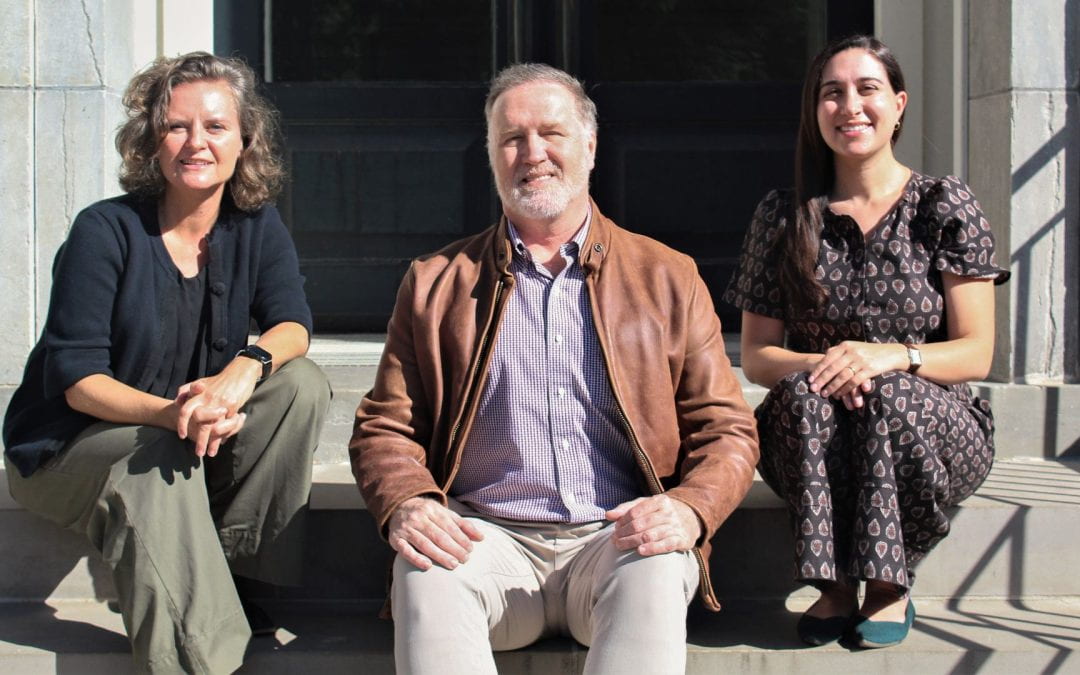A College of Education and Health Professions faculty team, along with partners across Arkansas state agencies, recently received a $9.9 million grant to help improve the economic self-sufficiency of Arkansas’ 14 to 18-year-old students with disabilities.
The U.S. Department of Education grant is one of 20 across the country focused on bridging the gap for youth with disabilities from high school to career success and independent living. Brent Thomas Williams, an associate professor who has worked in the college rehabilitation counseling program for more than 20 years, is the principal investigator for the grant, called Seamless Transition for Arkansas (STAR). Suzanne Kucharczyk and Sheida Raley, both special education experts in the college’s Department of Curriculum and Instruction — which prepares future teachers — are co-principals.
Kucharczyk, the interim department head for curriculum and instruction, said, “Funding for STAR will transform our state’s capacity for interagency collaboration in shaping the future lives of youth with disabilities by expanding resources through Career Councils.”
Through the five-year project period, the college will pilot, refine and implement the project while also collecting and analyzing data.
The grant proposal noted that despite decades of research and efforts across systems, youth with disabilities navigating the transition-to-adulthood period often don’t have the lives they desire and continue to be underemployed — compared to their peers without disabilities.
Williams emphasized that “STAR will facilitate Pre-Employment Transition Services (Pre-ETS) for 600 youth with disabilities in some of the most under-resourced areas of the state. Beyond the provision of services, STAR, unlike most model demonstration projects, will develop a sustainable infrastructure that will continue to reduce the marginalization and disenfranchisement youth in these areas experience well after the project’s funding has ended.”
The team’s vision has three main objectives to help improve post-school success for Arkansas youth with disabilities. The overarching goal is to help these students find competitive employment. Williams said the state of Arkansas is well-poised to make a significant impact on outcomes of youth with disabilities due to its ongoing engagement with the National Technical Assistance Center on Transition: The Collaborative (NTACT:C), efforts of the Arkansas PROMISE Model Demonstration Project, and collaboration with College of Education and Health Professions faculty.
The STAR project leverages these strengths through an innovative collaboration model aimed at targeting support in the state’s high-need regions to:
- Increase youth career and college preparation and experience opportunities through the development of additional pre-employment transition service providers (Pre-ETS) and enhanced engagement of state Centers for Independent Living (CILs)
- Increase the knowledge and skills of youth, families, providers, and other community partners through web-based and in-person learning modules aligned with post-school outcome predictors and scaling up efforts for community-level resource mapping; and
- Establish and implement an innovative, integrated collaboration model through training of Transition Navigators and empowerment of youth leaders co-leading community-led Career Councils, and use of the ECHO Model and supports to provide case-based, ongoing, interagency professional development to partners across the state
The STAR project was developed in partnership with the Arkansas Department of Education, Arkansas Rehabilitation Services, Arkansas Centers for Independent Living, and the U of A, with support from school districts, including Magnolia, Lakeside, and Lake Hamilton, as well as Workforce, Partners for Inclusive Communities (UCEDD), NTACT:C, and regional community colleges.


